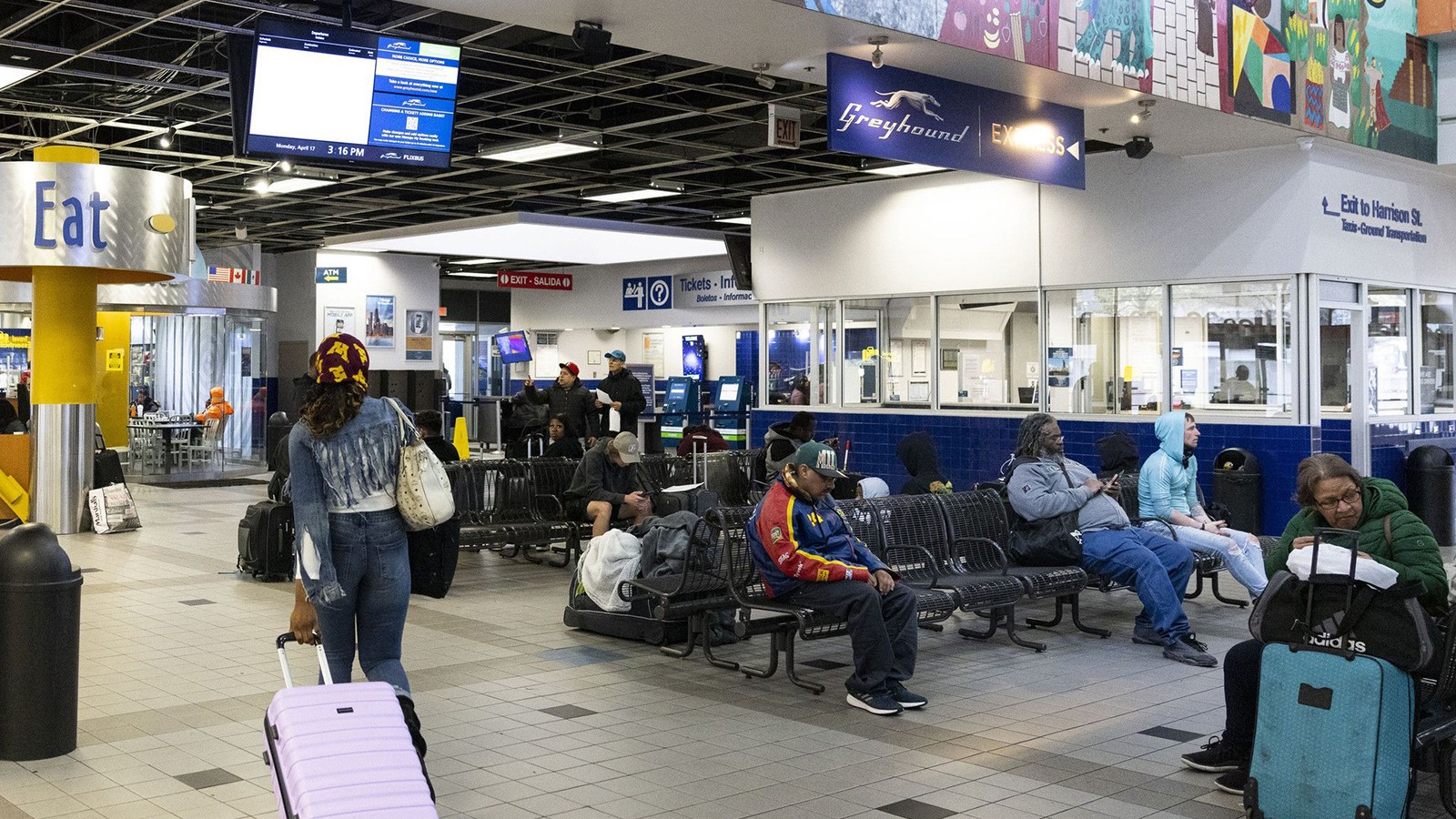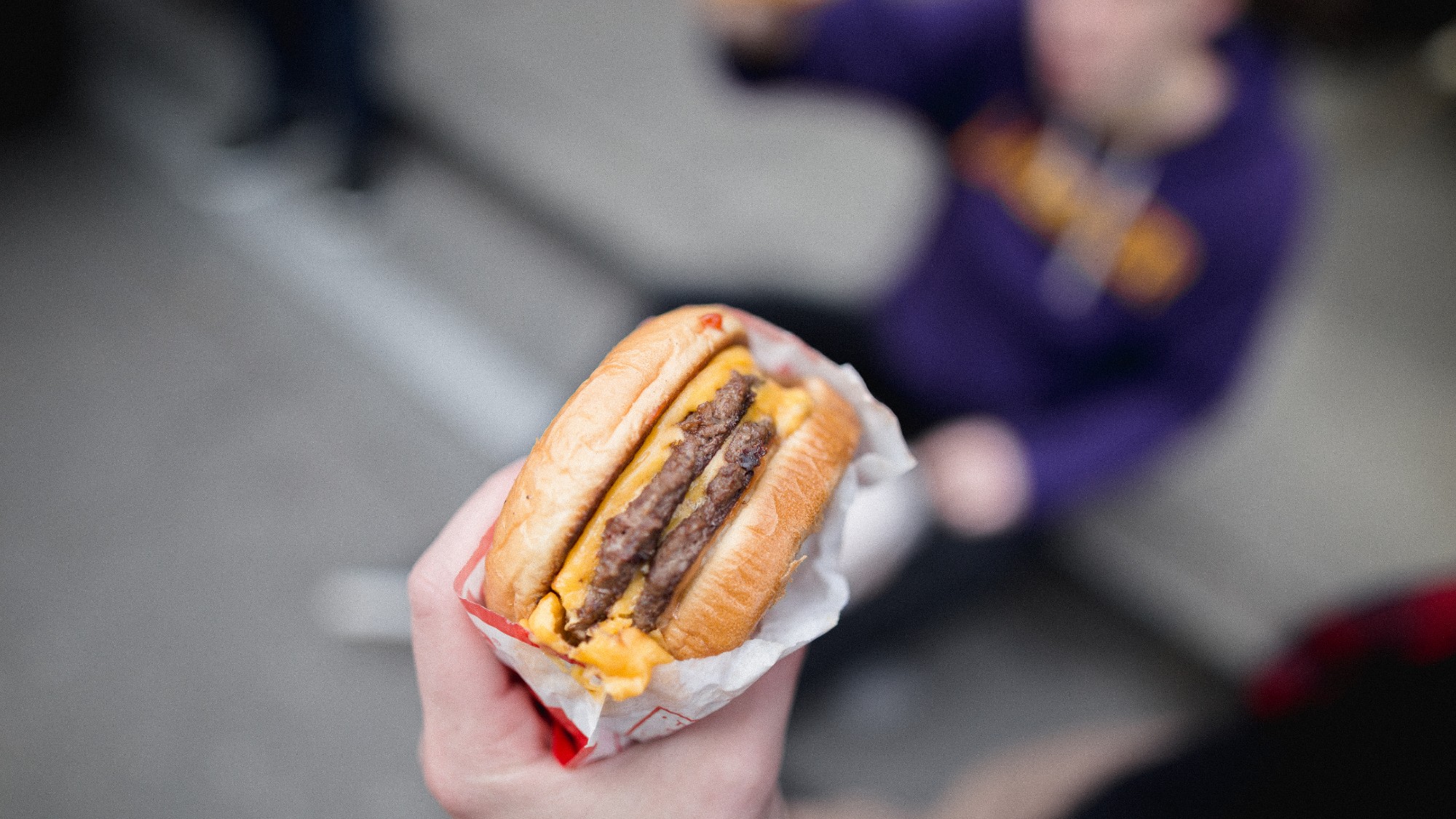The demise of Greyhound bus stations is a problem
A one-time staple of the American travel industry is in dire straits


Intercity buses were once the preeminent travel method in the United States, and there is one company that dominated the space: Greyhound Lines. With its instantly recognizable silver race dog adorning its buses, Greyhound is a classic part of Americana. During the 1940s, the company had an estimated 4,750 bus stations across the nation.
And while the company still serves 2,300 destinations across North America, there has been a clear decline in Greyhound bus stations. This is marked by a surge in the company's terminals being sold to investment firms, relocated to less-than-desirable areas or shuttered entirely.
While the advent of the commercial airline industry can be blamed for the decrease in bus travel over the decades, why has there recently been such a rush of Greyhound station closures? And what will happen to the approximately 60 million people who still rely on intercity buses as their dominant mode of transportation?
Subscribe to The Week
Escape your echo chamber. Get the facts behind the news, plus analysis from multiple perspectives.

Sign up for The Week's Free Newsletters
From our morning news briefing to a weekly Good News Newsletter, get the best of The Week delivered directly to your inbox.
From our morning news briefing to a weekly Good News Newsletter, get the best of The Week delivered directly to your inbox.
Where are Greyhound stations closing?
In recent years, Greyhound stations in Houston, Philadelphia, Cincinnati, Tampa, Louisville, Charlottesville and Portland, Oregon, have all shut their doors, according to CNN. There have also been talks to relocate the Greyhound station in Cleveland, and the real estate hedge fund that owns the Chicago station has reportedly placed that city's station on the market.
The Chicago station could "fetch more than $30 million," The Wall Street Journal said. If no buyer is found, though, the 87,000-square foot location could shutter, making Chicago the largest city so far to lose its Greyhound terminal, the Journal reported.
Why are these stations closing?
The after-effects of Covid-19 are at least partially to blame, as the pandemic, "with its social-distancing imperatives and calls for fresh, circulated air, decimated the industry," said National Geographic. This shift has resulted in layoffs, station closures and an overall decline in bus ticket sales.
The true culprits are more a combination of factors, including "high operating costs [and] government underfunding," CNN said. As the industry shrinks, the cost of maintaining Greyhound routes increases, and this can "threaten to break the comprehensive web of national bus routes," the outlet added.
It is also true that intercity buses are predominantly frequented by low-income individuals. While there have been protests by officials and passengers in some cities, "other cities are not sorry to see bus stations ... removed from gentrifying downtown locations," NPR said. "In a lot of cases, I've got to blame local governments who kind of treat the intercity industry as third-class citizens," Peter Pantuso, president of the American Bus Association trade group, said to NPR.
And while the Greyhound buses themselves "now offer power, Wi-Fi and free movies to laptop-toting riders," NPR said, this has not helped the bus stations, which are often in states of dilapidation.
Another key factor is the aforementioned purchasing of bus stations by investment groups. As business stagnates, Greyhound has been turbocharging the sale of its terminals to these firms, the largest of which is Twenty Lake Holdings. In 2022, Twenty Lake bought 33 Greyhound stations for $140 million. Twenty Lake is a subsidiary of Alden Global Capital, a hedge fund that is "notorious for buying up newspapers and other businesses, slashing expenses and, in many cases, selling off the real estate," said NPR.
This happened with the company's Greyhound properties, as Twenty Lake began "putting a portion of its property up for sale. That means Greyhound has been relocating some stations to the suburbs and in some cases, moving to curbside pickup points," Marketplace said.
What about the people left behind?
Many of Greyhound's customers "rely on buses for essential travel during emergencies or in areas without alternative transit options," said National Geographic. For large portions of the country, "bus lines like Greyhound are the only option for traveling to another city if you don't have a car," the outlet said.
And beyond the buses themselves, bus stations "were [historically] the only businesses open around the clock," Joseph Schwieterman, a DePaul University bus travel expert, said to NPR. "They had eateries open through the wee hours of the night, and there was always a buzz about them because people were coming and going." But as the stations close, there is often no sheltered, safe place for riders to wait.
The solution is "for the public sector to establish a central hub for intercity travel that also connects to the local transit system," Schwieterman said to Governing magazine. But if stations continue to shutter, "low-income groups, immigrants and travelers with mobility impairments will take it on the chin and feel the worst of it," he said.
A free daily email with the biggest news stories of the day – and the best features from TheWeek.com
Justin Klawans has worked as a staff writer at The Week since 2022. He began his career covering local news before joining Newsweek as a breaking news reporter, where he wrote about politics, national and global affairs, business, crime, sports, film, television and other news. Justin has also freelanced for outlets including Collider and United Press International.
-
 Japan's surname conundrum
Japan's surname conundrumUnder the Radar Law requiring couples to share one surname hinders women in the workplace and lowers birth rate, campaigners claim
-
 How successful would Elon Musk's third party be?
How successful would Elon Musk's third party be?Today's Big Question Musk has vowed to start a third party after falling out with Trump
-
 Music reviews: Bruce Springsteen and Benson Boone
Music reviews: Bruce Springsteen and Benson BooneFeature "Tracks II: The Lost Albums" and "American Heart"
-
 Rustle up some fun at these Western hotels and dude ranches
Rustle up some fun at these Western hotels and dude ranchesThe Week Recommends Six properties that are ready to rope you in
-
 Feel the groove with these music-centric getaways across the globe
Feel the groove with these music-centric getaways across the globeLet the rhythm move you
-
 See the bright lights from these 7 big-city hotels
See the bright lights from these 7 big-city hotelsThe Week Recommends Immerse yourself in culture, history and nightlife
-
 6 captivating new US museum exhibitions to see this summer
6 captivating new US museum exhibitions to see this summerThe Week Recommends Get up close to Gustave Caillebotte and discover New Vision photography
-
 Is Hollywood losing its luster?
Is Hollywood losing its luster?Today's Big Question Television and film production is moving, leaving Hollywood to ponder its place in pop culture
-
 America's favorite fast food restaurants
America's favorite fast food restaurantsThe Explainer There are different ways of thinking about how Americans define how they most like to spend their money on burgers, tacos and fried chicken
-
 Beauty is a bed away at these 7 fashionable hotels
Beauty is a bed away at these 7 fashionable hotelsThe Week Recommends Make these hotels in Macau, Italy and Washington, D.C., your personal runway
-
 Your inner romper is going to wild out at these 7 adult summer camps
Your inner romper is going to wild out at these 7 adult summer campsThe Week Recommends You're never too old to go back to camp
